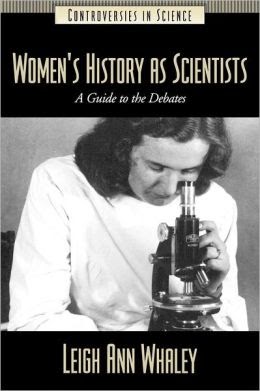The following books are available from our library collections in
digital or print editions.
Click here for a PDF handout of the list, which links to our catalog.
Contact us for other recommended readings and resources!
U.S.
Department of State, 2010
Sanford
Schwartz, ed.
Library
of America, 2011
Allen
F. Davis
Ivan
Dee, 2000
Deborah
Gray White
Norton,
1985
Greenwood
Press, 2008
Janet
Floyd
Rodopi,
2010
Sylvia
Plath
Bantam,
1972
Joyce
Carol Oates
Plume,
1992
Dale
M. Bauer, ed.
Cambridge
University Press, 2012
Cathleen
Miller
University
of Nebraska Press, 2013
Jacqueline
L. Castledine
University
of Illinois Press, 2012
Babette
Faehmel
Rutgers
University Press, 2012
Debra
Bergoffen, ed.
Routledge,
2011
Frank
Thames and Margaret S. Williams
NYU
Press, 2013
Danelle
Moon
Greenwood,
2011
George
R. R. Martin, ed.
Tor,
2013
Susan
Pedersen
Yale
University Press, 2004
Penny
A. Pasque and Shelley Errington Nicholson, eds.
Stylus
Publishing, 2011
Rosemary
Skinner Keller and Rosemary Radford Ruether, eds.
Indiana
University Press, 2006
Helen
Rappaport
ABC-CLIO,
2012
Victoria
Boynton and Jo Malin, eds.
Greenwood
Press, 2005
Hanna
Rosin
Riverhead
Books, 2012
Susan
Sontag
The
Library of America, 2013
Tiffany
K. Wayne
Greenwood,
2011
Jane
Pilcher
SAGE/Credo
Reference, 2012
Megan
Seely
New
York University Press, 2007
Robin
Jarvis Brownlie and Valerie J. Korinek, eds.
University
of Manitoba Press, 2012
Susan
Thistle
University
of California Press, 2006
Laura
Sjoberg
Praeger
Security International, 2010
Hillary
L. Chute
Columbia
University Press, 2010
Gill
Plain and Susan Sellers, eds.
Cambridge
University Press, 2007
Ronald
C. Meyer and Kayann Short, producers
Ambrose
Video Publishing, 2006
Merle
Hoffman
Feminist
Press at CUNY, 2012
Norma
Smith
Montana
Historical Society Press, 2002
Valerie
Jarrett and Christina Tchen
The
White House Council on Women and Girls, 2012
Connie
Field, producer
Direct
Cinema Ltd., 1999
Juliana
Baggott
Southern
Illinois University Press, 2006
Brigitte
Bailey
University
of New Hampshire Press, 2013
Marilyn
Bailey Ogilvie
Greenwood
Press, 2004
Heide
Goettner-Abendroth
Peter
Lang, 2012
Rebecca
Jo Plant
University
of Chicago Press, 2010
Michael
Montlack, ed.
Terrace
Books, 2009
Marjorie
Julian Spruill
Oxford
University Press, 1993
Nancy
A. Hewitt, ed.
Rutgers
University Press, 2010
Willa
Cather
Floating
Press, 2009
Nona
Willis Aronowitz, ed.
University
of Minnesota Press, 2011
Maggy
Hendry, ed.
Palgrave
Macmillan, 2005
Alisha
R. Knight
University
of Tennessee Press, 2012
Nicolas
Lampert
The
New Press, 2013
Emily
Dickinson
Floating
Press, 2009
Honor
Moore, ed.
Library
of America, 2009
Nadine
Cohodas
University
of North Carolina Press, 2002
Jayne
Wark
McGill-Queen’s
University Press, 2006
Wilma
Mankiller, et al.
Houghton
Mifflin, 2012
Janet
Abbate
MIT
Press, 2012
Melissa
Atkins Wardy
Chicago
Review Press, 2014
Carlos A. Ball
New York University Press, 2012
Judith Wellman
University of Illinois Press, 2004
Dyan Zaslowsky
University of Georgia Press, 2009
Carrie Brown
Northeastern University Press, 2002
Ann Carey McFeatters
University of New Mexico Press, 2005
James Joy
State University of New York Press, 2013
Ann D. Gordon, ed.
Rutgers University Press, 1997
Louise Erdrich
Harper, 2010
Lillian Eugenia Smith
Harcourt Brace Jovanovich, 1992
Stephanie Coontz
Basic Books, 2011
Sandra Stanley Holton
Routledge, 1996
Susan Minot
Knopf, 2014
Ann Braude, ed.
Palgrave Macmillan, 2004
Joan Didion
Knopf, 2006
Barbara Sicherman
University of North Carolina Press, 2010
Peter Bagge
Drawn & Quarterly, 2013
Sheryl J. Grana
Rowman & Littlefield, 2010
Rosemarie Skaine
ABC-CLIO, 2011
Dorothy A. Mays
ABC-CLIO, 2004
Karin Klenke
Emerald Publishing Group, 2011
Laura Woodworth-Ney
ABC-CLIO, 2008
Julie C. Dunbar
Routledge, 2011
Bernie D. Jones
NYU Press, 2012
Leigh Ann Whaley
ABC-CLIO, 2012
Christa DeLuzio, ed.
ABC-CLIO, 2010
Laurie F. Maffly-Kipp and Kathryn Lofton, eds.
Oxford University Press, 2010
Charlotte Perkins Gilman
Floating Press, 2009 (orig. pub. 1892)
Lilly J. Goren
University Press of Kentucky, 2009
* cover
image from BrainGuidance.com

















